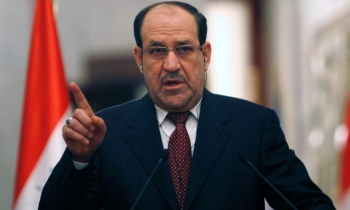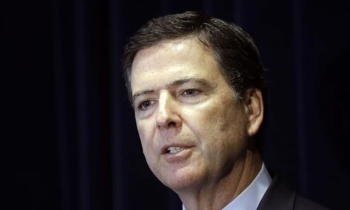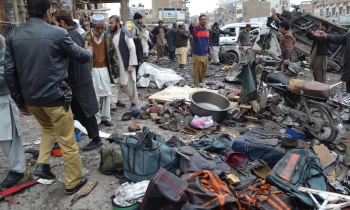The old joke asks what do you do when the only way to save an endangered species is to feed the animal endangered plants. The serious question is what do you do when the only way to protect freedom of the press is to kill the biggest story of your career. This Solomonic stumper arose last weekend when an independent US prosecutor charged the top aide to Vice President Dick Cheney with perjury. The precise problem is that Lewis ``Scooter'' Libby is the crimeless victim in a complicated case that will erode press freedom enormously if it is successful _ even though it is the front-page scandal of the decade while it lasts and, especially, if the case widens.
Not that perjury is a trivial accusation _ a technicality, or what they charge you with if they can't find a real crime, in the words of Senator Kay Bailey Hutchinson, a Republican and thus on the side of Mr Libby, Mr Cheney and their boss, President George W Bush.
Perjury is precisely what got President Bill Clinton impeached in the only such case of the 20th century. It is a serious offence under US law to lie to an investigative grand jury and its prosecutor. If convicted, Mr Libby could be sentenced to 30 years in prison.
Mr Clinton's charges arose simply enough, from his undignified dalliance with a young aide, which he then prevaricated about. Mr Libby's arise from a highly complicated case which could involve other criminal charges, but so far have not. Mr Libby is charged with lying about where he heard about the alleged crime.
It may be there was no original crime at all. If there was one, it was ``outing'' and naming an undercover employee of the Central Intelligence Agency, Valerie Plame. The conservative columnist Robert Novak was the first to identify her by name _ this much we know _ but Mr Novak has not been charged, and apparently will not be. And if you think that is complicated, the New York Times reporter Judith Miller was jailed for refusing to testify in the case about a story she never wrote.
So although there is no question of trivial prosecution, it is pretty well impossible to explain what Mr Libby allegedly lied about in a single print column. It involves the Iraq war, Ms Plame's husband Joseph Wilson, Mr Bush's chief of staff Karl Rove _ but not the president himself, except by association.
The media conundrum is that lots of them want to see Mr Rove accused, preferably of a major crime, and Mr Libby persecuted as well as prosecuted, and Mr Bush humiliated by the case. This scenario is called ``Fitzmas'' by the openly anti-Bush media section, after the highly respected, incorruptible prosecutor Patrick Fitzgerald.
The problem is that the chief witnesses against Mr Libby will be reporters. A number of them, including Ms Miller and the high-profile TV interviewer Tim Russert of the National Broadcasting Company, have quite different memories of their conversations with a then-media friendly Mr Libby back in 2003, the year of the US invasion of Iraq.
Mr Libby remembered to Mr Fitzgerald that Mr Russert told him about Ms Plame and Mr Wilson. But Mr Russert and his notes say he never discussed the matter with Mr Libby. Mr Fitzgerald claims that Mr Libby learned of Ms Plame from his boss, Vice President Cheney. (What Mr Cheney and Mr Bush told Mr Fitzgerald is yet unknown.)
All of this is juicy scandal. Experienced scribes are recalling Iran-Contra and the Clinton cases, Whitewater included. There were perjury charges then, too. But the direct involvement of the media in the Libby case rightly gives many news people bad vibes. The press is going to be reporting on itself all through the Valerie Plame case, especially if it widens. And officials at all levels of government, career bureaucrats and short-term appointees alike, are going to be considering and reconsidering the game and consequences of back-scratching reporters.
The US media are already in a bad mood, inclined to oppose the Bush administration at every step, on every issue. The reason is the strong criticism heaped on the US press corps for its pre-invasion Iraq coverage.
Egged on by foreign colleagues claiming to be dismayed at how the American press rolled over and regurgitated government claims about Iraq, particularly weapons of mass destruction, the US media are going overboard in the other direction. In many cases, they are not just questioning government statements and actions, but directly accusing the government of incompetence and worse. Criticism of the Iraq coverage led directly to equally dreadful press coverage in the opposite political direction of the Hurricane Katrina disaster in New Orleans. There the media, if it did not invent false and anti-government stories, bent over backwards to disseminate them, usually without follow-up corrections.
Mr Fitzgerald's prosecution of Mr Libby and possibly others will require strong help from news people to convict. Even then, it won't be easy. And here is the exact dichotomy:
In order to get a better story, members of the media must testify against the source (Mr Libby) or sources (if Mr Rove, Mr Cheney or others are charged) and help to convict and imprison them. They must do this as they lobby for a special law to shield journalists so that they do not have to identify or testify against their sources.
In other words, they want, and Ms Miller even went to jail to demand the right to be a fly on the wall without legal responsibility. But if they fail to assume legal responsibility there will be no successful prosecution, no scandal, no further legal action around the Iraq war _ in short, no sensational story.
Mr Fitzgerald excepted, one imagines, most top-level government officials such as those in the White House will be cheering for the press shield law. Why? Because Washington reporters and Washington officials have formed tight, interdependent groups over the past 50 years or so, and the Libby case threatens this entire establishment. If reporters must or, much worse, if reporters actually want to testify about their cozy background and off-the-record discussions, there won't be many of those informative get-togethers from now on.
Tough days lie ahead for Mr Libby, and for others who still face possible charges. Tough decisions lie ahead by the media about whether they want to make all future news sources distrust them tomorrow, for the sake of a juicy scandal story today.









